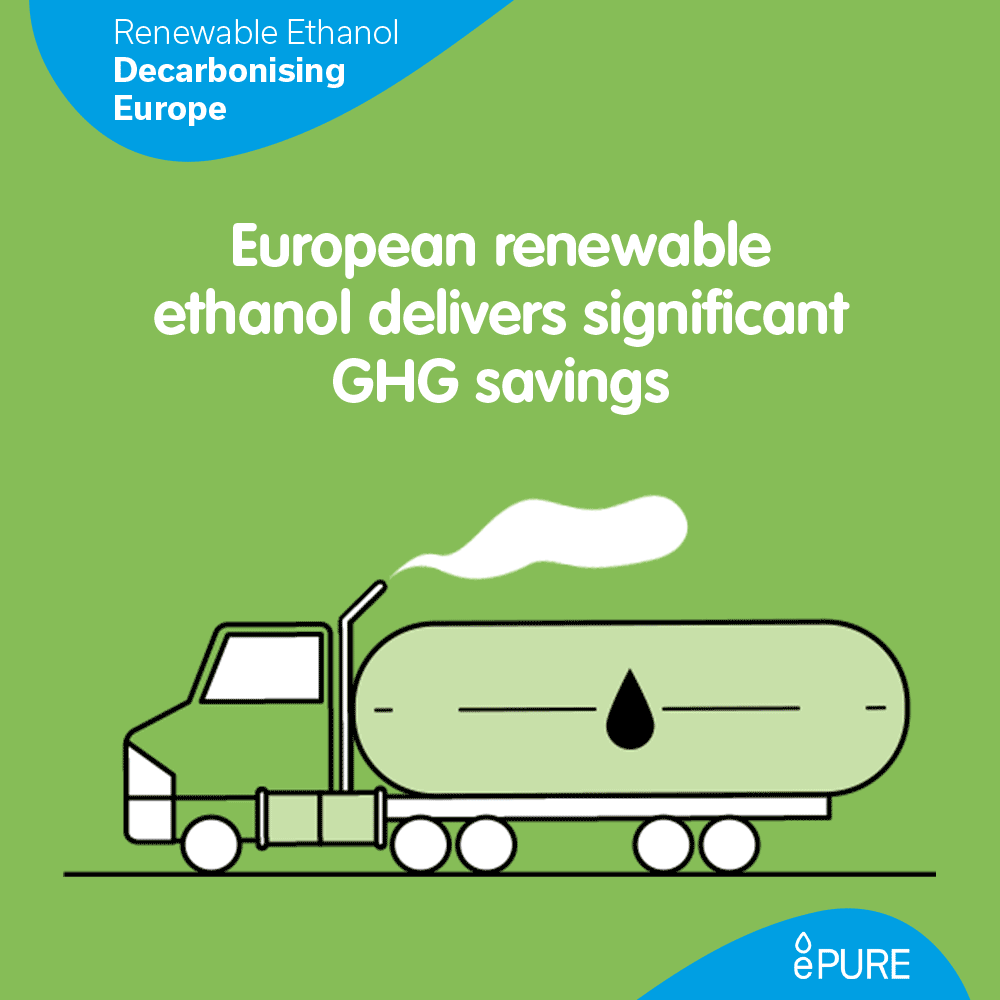
What is ethanol?
It’s an alcohol, and when blended with petrol it helps reduce harmful emissions.
What is ethanol?
 Ethanol is an alcohol, and is used for a variety of purposes – including as a renewable fuel blended into petrol. Renewable ethanol is produced sustainably from biomass feedstock – mainly cereals and sugar beet, but also processing residues and waste. It is used around the world to reduce the carbon footprint of petrol, boost engine efficiency and performance, and lower costs. In Europe, where the vast majority of petrol contains up to 5% ethanol in volume (known as E5) and sometimes higher percentages (E10, E85 or ED95), ethanol from ePURE members delivers significant greenhouse gas reductions: more than 79% on average over fossil fuels.
Ethanol is an alcohol, and is used for a variety of purposes – including as a renewable fuel blended into petrol. Renewable ethanol is produced sustainably from biomass feedstock – mainly cereals and sugar beet, but also processing residues and waste. It is used around the world to reduce the carbon footprint of petrol, boost engine efficiency and performance, and lower costs. In Europe, where the vast majority of petrol contains up to 5% ethanol in volume (known as E5) and sometimes higher percentages (E10, E85 or ED95), ethanol from ePURE members delivers significant greenhouse gas reductions: more than 79% on average over fossil fuels.
What crops are used to produce ethanol?
Most ethanol is currently made from corn, sugar beet and wheat, but new technologies enable ethanol to be created from other materials like waste and residues, such as straw. Because it comes from plants, ethanol is a renewable and climate-friendly source of energy. The process for making ethanol from crops also results in the co-production of high-protein animal feed, making ethanol an important source of food and fuel. It also produces captured CO2 that has been absorbed by the refinery and can be re-used in other products (fizzy drinks, greenhouses, etc.).
